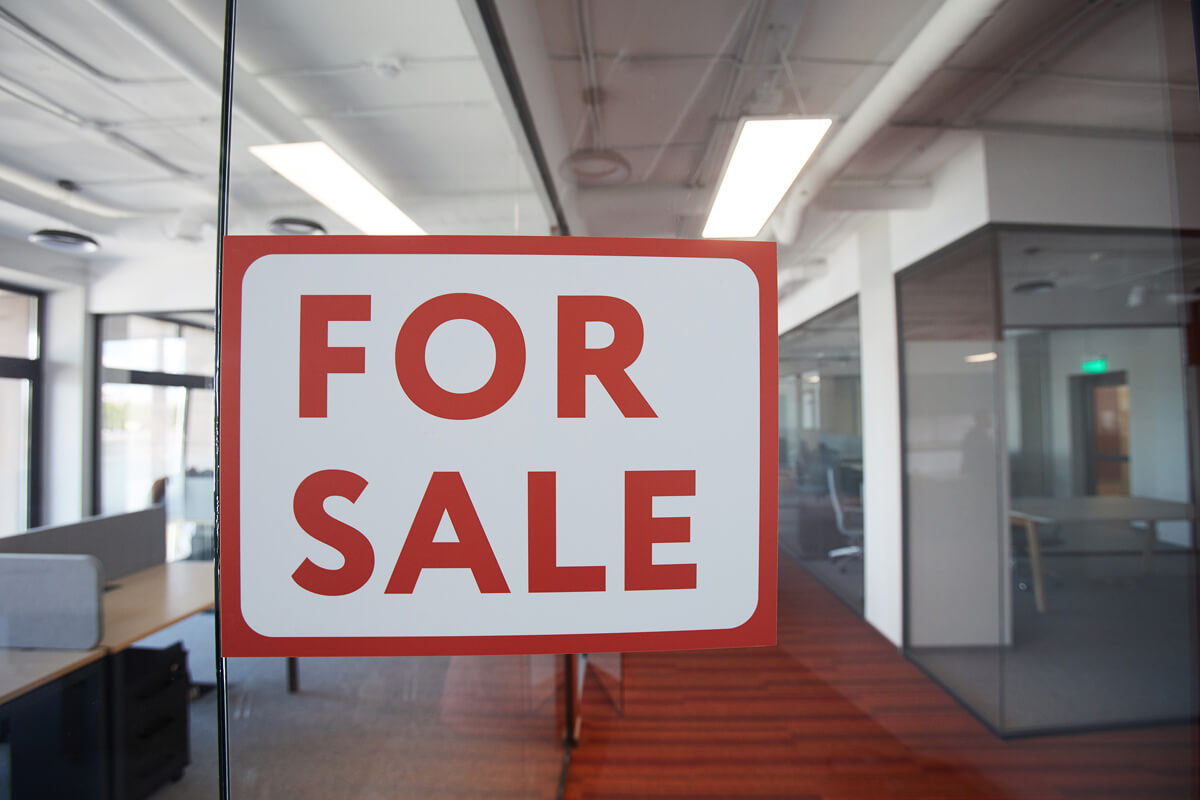For the last year, the U.S. has had more remote workers than ever before. For those in the market to rent (or purchase) an office, this has presented a unique opportunity to get into previously tough-to-afford spaces. But, there are a number of different nuances to the decision of whether to rent or buy an office space, with no one-size-fits-all approach.
Below, we'll discuss just a few of the many factors to consider when weighing the decision to rent or buy office space.
Upfront Costs
Those who lease an office space may need to pay a security deposit or an extra month's rent before moving in. But these costs—which generally make up 5 to 10 percent of the annual rent amount—can often pale in comparison to the cost of a down payment on the purchase of office space. If you don't have a ton of funds to get started, leasing may provide a more cost-effective path to entry.
Monthly Carrying Costs
Leasing can often provide lower monthly carrying costs than buying a comparable space. This is because tenants are rarely responsible for costs like building maintenance, repairs, and sometimes even utilities. Leasing provides the tenant with a predictable monthly (or annual) cost, while buying can leave the purchaser subject to sudden (and often surprise) expenses.
However, the higher monthly carrying costs buyers often experience can be tempered by their opportunity to build equity in a property. Someone who pays rent for 30 years has no more claim on a particular property than someone who just signed a brand-new lease; if you plan to stay in an office long-term, it may make more sense to pay yourself than to pay a landlord.
Flexibility, Autonomy, and Control
The flexibility knife can cut both ways when it comes to leasing or buying an office.
Leasing is generally considered the more flexible option, allowing you to vacate the premises as soon as your lease is up. But left unsaid is the assumption that, in this situation, the lease is a fairly short-term one without early termination penalties. In other words, if you have a five-year lease that won't allow you to terminate without paying the full balance—or five years of payments—you may be in about the same position as an owner.
This decision may hinge on the amount of flexibility you think you'll need. If there's a significant chance that the facility you're interested in is either going to be too big or too small for your office needs five years down the road, leasing may be the better choice. On the other hand, if you're interested in gaining a foothold in an established neighborhood and don't see your space needs changing, buying could be best.
Owners have the additional flexibility of choosing to rent out office space to another tenant for extra income. Though some leases allow the tenant to sublease a portion of their own space, many will require any sublessee to contract directly with the leasing agent instead of the current tenant.
Tax Benefits
There are tax benefits to both leasing and buying office space, though these benefits can vary widely based on the state, the relevant tax rate, and the cost of the property.
Tenants are generally able to deduct lease payments for commercial property. Other rental deductions may also be available.
Buyers can sometimes deduct mortgage interest payments on their taxes. Depreciation may be available as well, allowing the buyer to write off the cost of their property over a period of time to reduce the tax bill.
Location, Location, Location
For some offices, location is key—and is worth a premium. Because it's generally cheaper to lease a higher-end rental than to buy it, if being in a certain location is worth it to you, leasing can get you more bang for your buck. Restaurants, hair salons, and other high-visibility businesses may be good leasing candidates.
Alternatively, if your office needs are served well enough regardless of your location, buying a property that's a bit off the beaten path can allow you to save money.
Risk Management: Leasing vs. Buying Office Space
Regardless of whether you opt to lease or buy your office space, there are a few steps you can take to manage the risk of the transaction.
- Ensure that your lease or purchase agreement has been reviewed by an attorney. This can ensure that you're fully protected against expenses or potential liabilities you might not have expected.
- Make sure each party's obligations are fully spelled out in the lease or purchase agreement. Whether this means assuming responsibility for current tenants' leases, being restricted from allowing more than one of a certain type of business in a multi-tenant property, or being required to carry a certain amount of renter's insurance, having all expectations committed to paper can help avoid confusion later.
- Work with a real estate agent who has experience with the types of transactions you're interested in. Your agent can make sure you're not overpaying for a property or taking on any potential risks you might not be considering.
- Fully research your options and, if applicable, review them with your financial professional to ensure they fit with your long-term goals.
- Evaluate how renting or buying will impact your cash flow, credit score, and creditworthiness. If you might need to take on additional debt soon, having a flexible lease payment instead of a relatively inflexible mortgage may improve your approval prospects.
The answer to lease or buy office space is not clear-cut and easy for most small business owners. Your decision will hinge on a combination of financial, tax, and personal issues. As you explore the decision, bring in your accountant and financial planner to guide you with the best advice for your situation.
At Wasatch Peaks Credit Union, our representatives can help you work through the pros, cons, and possibilities of renting or buying office space.
If you're interested in exploring your options, reach out to us to learn more about what we offer.



